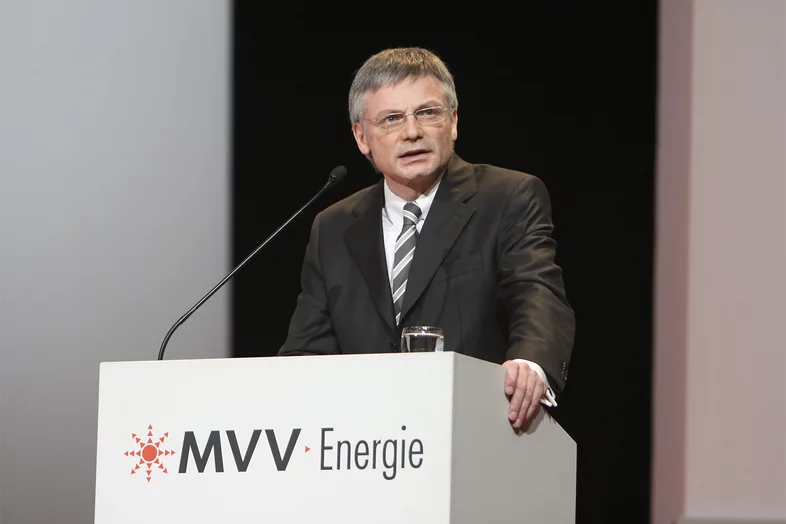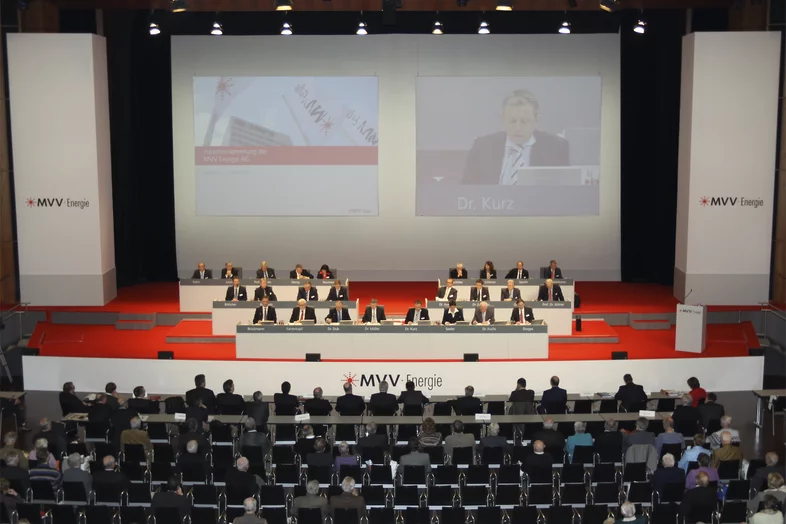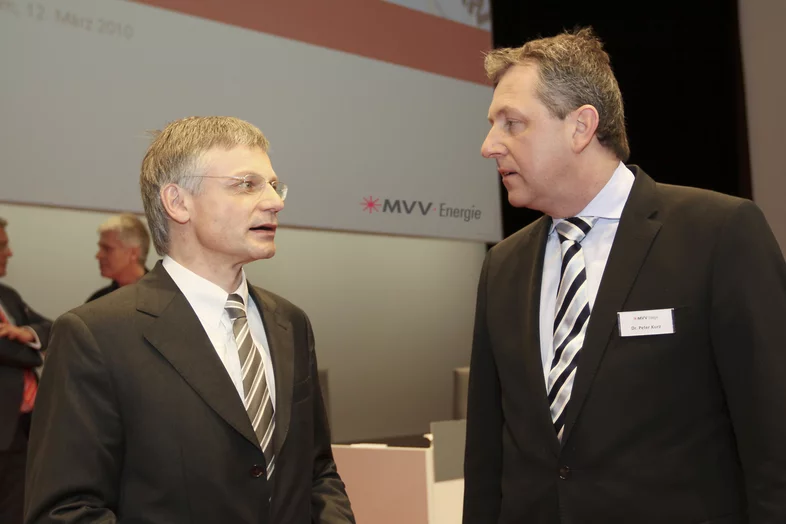MVV Energie expects ecologisation of energy industry
Annual General Meeting of Mannheim-based energy company focuses on strategic alignment and implications of economic crisis - Profitable growth by investing in renewable energies and energy efficiency
By 2020, the Mannheim-based energy company MVV Energie AG intends to boost the share of renewable energies in its proprietary energy generation activities to 30 percent. This was announced by Dr. Georg Müller, CEO of the SDAX-listed company, at this year's Annual General Meeting held at the Rosengarten Congress Center in Mannheim this Friday. "We are convinced that the future lies with renewable energies," commented Dr. Müller. "We will now be converting our power plant portfolio step by step to renewable energies." With an 18 percent share of renewable energies currently, MVV Energie is already ahead of the national average and is one of the market leaders in the environmentally-friendly use of biomass.
According to MVV Energie's CEO, the long-term trend towards ecologisation in the energy industry is now irreversible. He nevertheless spoke in favour of maintaining a balanced energy mix for the transitional period on the way to the renewable energies era. Modern, highly-efficient coal power plants that use cogeneration to produce electricity and heating energy simultaneously form an indispensable component of this mix. "Supply security is not something we can just take for granted." For MVV Energie, the new Block 9 currently being built at the large power plant in Mannheim (GKM) is therefore an essential element in the company's sustainable strategy.
MVV Energie posted satisfactory results overall for the past 2008/09 financial year (1.10.2008 ¿ 30.9.2009) and also met its own targets. The company managed to boost its sales by 20 percent from Euro 2.6 billion to Euro 3.2 billion, thus passing the 3-billion mark for the first time. At the same time, in line with expectations adjusted operating earnings (adjusted EBIT) showed a slight decline of 4 percent to Euro 239 million. The current economic crisis also left its mark on the Mannheim energy company. Earnings were burdened by a decline in production output and resultant fall in demand at customers, lower generation prices and reductions in commercial waste prices. However, according to Dr. Müller, MVV Energie has "emerged in good shape from this crisis year, as we successfully maintained our ground in the market by offering innovative products. Our electricity and gas sales to industrial, commercial and secondary distribution customers nationwide more than made up for the loss of volumes due to the crisis".
In view of these developments, the Supervisory Board and Executive Boards are proposing an unchanged dividend of 90 cents per share for approval by the Annual General Meeting. The distribution total thus again amounts to Euro 59.3 million. At just under 3 percent, the dividend yield is also stable.
For the current 2009/10 financial year, MVV Energie's CEO affirmed the outlook published in January in spite of the ongoing macro-economic uncertainties. The company thus intends to match the previous year's level of sales and adjusted EBIT once again. "That is a challenging and ambitious target given that the crisis, with its negative impact on the energy industry's operating environment, is by no means yet over," added Dr. Müller.
With regard to the energy concept announced by the Federal Government, Dr. Müller spoke out in favour of clear energy policy guidelines and of a reliable regulatory framework which also left scope for entrepreneurial freedom. "We have to maintain a healthy balance between free markets and state regulation." It was important for policies to allow budgeting reliability and stability. "Given the investment cycles involved, energy management measures cannot be changed from one legislative period to the next." In view of the extension of nuclear power plant operating lifetimes planned by the government, Dr. Müller expects to see less incentive to invest in renewable energies as a result. "We naturally accept that politicians ultimately have the final say in this matter, but we do demand that this policy reversal should not lead to any distortion of competition for other energy companies, especially those that have made investment decisions in recent years based on the legal framework then in place."




